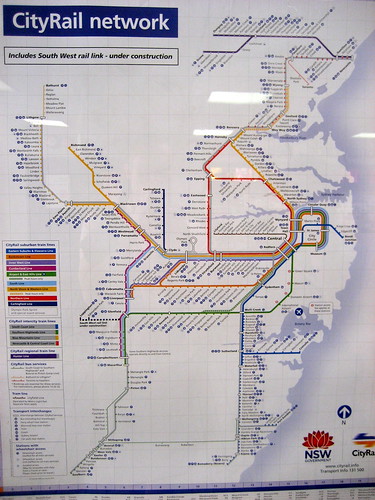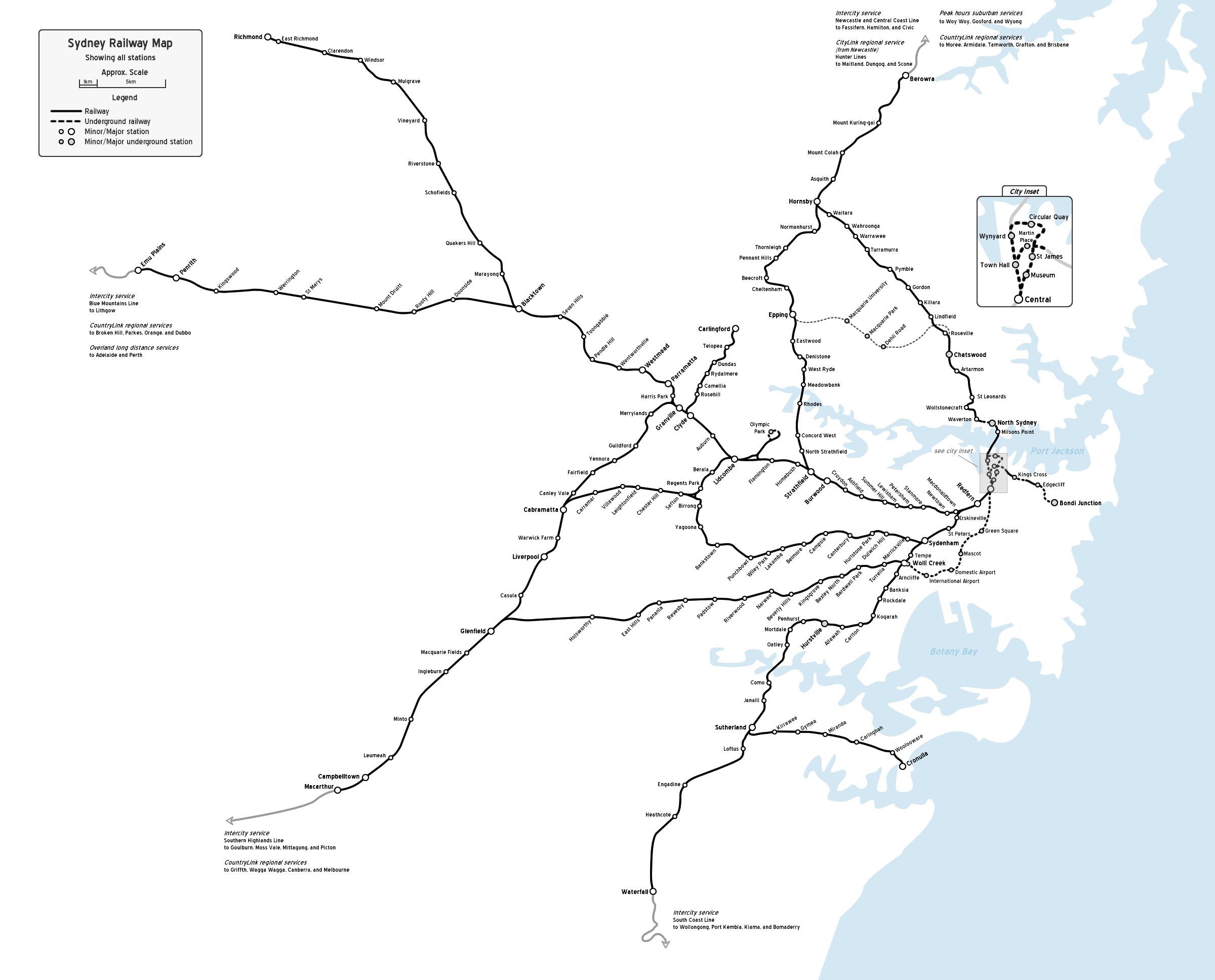I'm sure Barry O'Farrell knew that before the last few days came to pass, but he has certainly been reminded of it now.
To understand why, it necessary to take a few steps back.
During the lead-up to the election, the Coalition released a policy entitled Graffiti Crackdown:
 |
| The full Policy can be found here |
A few initial thoughts.
1) To require the vandals to appear before the courts is silly. To be clear - at the moment, police have a discretion as to whether a person should appear before a court or rather be dealt with by way of a fine.
Is there any evidence that police are going soft on offenders? Or is the public dissatisfied with the approach taken by police? I've seen no such evidence, and I doubt that it is the case.
It's normal to read complaints about the discretionary decisions made by magistrates and judges. It's odd to see police implicitly criticised in the same way.
2) The third policy point is, in fact, entirely along these lines. It removes the court's discretion in relation to Community Service Orders and forces the court to impose such an order.
Was the court not imposing enough orders? Were there examples of youths reoffending and not being forced to clean up the mess? Who knows! But this is a nice headline and a strong sounding bullet point, so I suppose I shouldn't be surprised.
3) The changes in relation to driver's licences do not make any sense. It is ridiculous.
Let's think about the average graffiti vandal. In using the word vandal, I am intentionally excluding those persons who graffiti in a legal and responsible manner and focus only on those who create eyesores and damage property not belonging to them.
If this person has their licence taken away or limited, is it more likely to change their behaviour, or is more likely to cause resentment, increase bitterness towards "the system" and hammer home the message that you are an outsider, that society has no place for you?
Moreover, once you start suspending licences, you start setting up people to fail, because there is a good chance that the (even more resentful and angry) young person will drive anyway, be convicted of Drive While Suspended, and start down a road that ends in being disqualified til 2050 and in prison.
Having seen many people head down that path and come out the other side in pretty poor condition, it is my view that we shouldn't be taking licences off people unless they are actually a danger to other people while driving.
Moreover, is there any good reason to be taking away their licences? Is there any evidence that it will actually deter them from offending? I doubt there is, and if the research was done I doubt that it would show this result.
It's illogical. Why don't we also confiscate their IPods? Or, better yet, spray-paint their hands with acrylic paint every day for a month? ACTUALLY, what we should do is name them and shame them. Yeah, that'll work, right?
People who tag walls and graffiti trains do it for complicated reasons. To simply pluck solutions out of the air because it tests well or, even worse, because it sounds like a good idea to someone with no experience in the criminal law, is stupid, and deserving of ridicule.
The worst part of the whole debacle is this: in November 2010 a detailed inquiry presented its findings on the way graffiti is dealt with.
 |
| The Full report can see read here |
The report spends some time looking at the way councils and the community deal with graffiti, and in fact made a recommendation that the Coalition has all but directly lifted and pasted into the policy:
On criminal penalties, the report spent some considerable time reviewing submissions made on penalties.
Several councils made submissions on this point. Some criticised the maximum penalties available, whilst others looked at the willingness of the courts to apply heavy penalties where appropriate. Certain councils complained about the level of police resourcing devoted to graffiti, which the submission from the AG department detailed the difficulty police have catching and prosecuting the offenders.
No one who the writers saw fit to quote thought that we needed to branch out into these new forms of punishment. Why? In my view, it is because the changes make some political sense and no policy sense whatsoever.
The only recommendation made by the report on the issue of penalties was this:
In any event, the legislation was introduced to the Legislative Assembly on 1 June 2011. The objectives of the Act read as follows:
Greg Smith (LIB and Attorney General) spoke on the bill, explaining its provisions and the reasons for the bills introduction.
The debate continued on 2 August, with Paul Lynch (ALP) saying the following:
He goes on the criticise the part of the bill that will force magistrates to impose Community Service Orders, and makes these comments about the drivers licence changes:
The final comment I want to pick out from his speech is this, on the removal of the police discretion:
Finally he indicates that at an appropriate time he will move an amendment to the bill.
Over the rest of the week numerous Liberal members spoke in favour of the bill and just as many ALP members spoke in support of the bill with the amendments hinted at.
Jamie Parker (GRN) also spoke on the bill. Rather than supporting an amended version of the bill, he indicated that he would oppose it. He said the following:
On 3 August Clover Moore (IND) spoke briefly on the bill, opposing it because she believes it will not act to reduce graffiti. On the same day Greg Piper (IND) gave what he called "qualified support" - the qualification appearing to be that "a concerted effort to engage with offenders and potential offenders must be maintained." Richard Torbay also spoke in support of the bill.
On 5 August the bill was passed by acclamation.
An amendment was immediately moved by Paul Lynch (ALP). The proposal was neatly summed up by Greg Smith:
The amendment failed and the bill was promptly sent off to the Legislative Council.
The Second Reading Speech before the Legislative Council was delivered by Michael Gallagher on 10 August, before Adam Searle (ALP) spoke of the ALP's intention to propose and amendment to the bill.
After some speeches for the bill (every second speech being in favour of some sort of amendment) Paul Green (CDP) spoke strongly in favour of the bill, including the parts that the ALP had to this time indicated an intention to amend.
The next day David Shoebridge (GRN) came out hard against the bill, opening with:
There followed further speeches from LIB and ALP members parroting the same positions.
On 25 August, the bill was read for a second time. Adam Searle then proposed amendments which would, if I am reading them correctly, allow police to caution offenders who have committed a first offence, and further restore a magistrate's discretion regarding the making of Community Service Orders.
Jane Barham (GRN) and David Shoebridge (GRN) both spoke in support of the amendments, whilst Scott MacDonald (LIB) spoke against. The House divided as follows:
The important part, and the part that would get O'Farrell so upset in the days to follow, is this: Mr Borsak (SF) and Mr Brown (SF) can both be seen in the Ayes section. The Shooters and Fishers had not said a word against the bill during the debate but voted for the amendments.
The bill as amended was put to a vote and, with only the Greens opposing it, was passed and returned to the Legislative Assembly.
O'Farrell's fury practically screams off the pages of Hansard for 26 August:
The bill was sent back to the Legislative Assembly with the following message:
Not content to have his say in parliament, O'Farrell immediately started speaking to the media about the issue using what can only be described inflammatory language:
| From SMH - full article here |
Whilst O'Farrell was out talking about the act however, the Greens were far more interested in talking about the fact that the Shooters and Fishers had sided with the ALP and the Greens:
 |
| From SMH - full article here |
By Saturday O'Farrell was ripping into the Shooters for voting for the amendments in the manner in which they did:
 |
| From SMH - full article here |
 |
| Full article here |
Herald reports suggest that since the vote the Shooters members have been avoiding the media.
It is difficult to imagine why the Shooters would create this issue. Do they really care that much about the Graffiti legislation? They are more than a single issue party, but they also usually pick their battles. Why this? Why now?
The cynic in me wants to suggest that they have been put up to this by O'Farrell as a chance to prove their independence on a comparatively minor bill - but the drama seems to have hurt the two parties, despite the fact that it has somewhat lessened the impression of being in the Coalition's pocket.
The Greens have been busy saying that this issue a big falling out between the Coalition and the Shooters:
As for me - I don't know what to think. Perhaps the Shooters are sticking it to the Coalition by voting down a bill that had been a part of their campaign - but how does voting with the Greens and the ALP help the Shooters?
And is it possible that O'Farrell really didn't expect that to happen? No matter what it is that the Shooters want - why would they do this without giving O'Farrell any warning whatsoever.
I don't know. The more I think about it, the more I think that there is more to this than meets the eye. Maybe the Shooters are feeling taken for granted. Maybe they will relent and let the bill pass through the Legislative Council once they get a commitment on something they want from the Coalition.
Or maybe this has all happened with a wink and a nudge from both sides, just to prove to everyone that they are not the great mates everyone seems to think they are. I certainly find it hard to believe that this is all about the merits of the bill.
Either way, I'm sure we'll be hearing a lot more about this bill, no matter what happens when it reappears in the Legislative Council later this week.









































